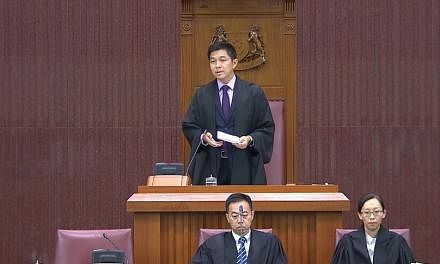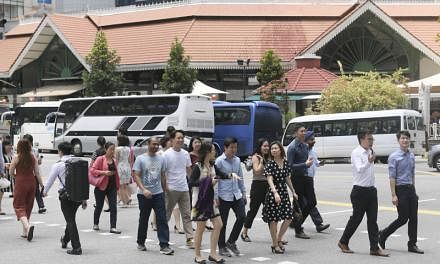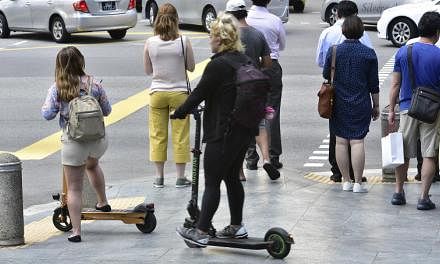It has been six years since the last tightening of the foreign worker quota in the service sector, but companies are about to feel the squeeze again.
At most, 40 per cent of their staff can be foreign now, but the ratio will go down to 35 per cent by 2021.
The measure is aimed at raising the competitiveness of the sector, which lags significantly behind the manufacturing sector in productivity.
Last year, productivity growth in real value added per actual hour worked was just 2.2 per cent in the service sector, compared with 9.8 per cent in manufacturing. Construction productivity grew by 2 per cent, according to figures in the Economic Survey of Singapore.
Certain service industries such as finance and insurance and accommodation did better.
But the food and beverage and retail industries were picked out by Finance Minister Heng Swee Keat as segments that remain very labour-intensive.
Some progress has been made - iPad-ordering systems are becoming more common in restaurants, and more retailers are using RFID (radio-frequency identification) to track their products behind the scenes. But technology is not being used widely or innovatively enough. Perhaps more can be done to showcase new ideas and best practices to spark interest among companies.
Boosting productivity in the service sector is critical as it employs the bulk of workers here, even as companies continue to grapple with a shortage of local manpower.
Already, the quota in the service sector is the tightest of all the sectors. The quotas range from 60 per cent for manufacturing to 87.5 per cent for the construction and process sectors.
But a common gripe among service-sector companies with more manual jobs is that Singaporeans are not interested in such roles due to the long hours, unpleasant work conditions or lack of a career path.
With the tighter quotas, bosses will be forced to move faster to upgrade jobs and improve the work conditions to draw more locals.
They may also need to spend more to pay better wages or invest in technology and automation. The result of this is that consumers may need to pay a little more for their goods and services.
It will take some time for companies, workers and consumers to adjust to these changes. But the main gainers will be Singaporeans if the measures help boost service standards.











